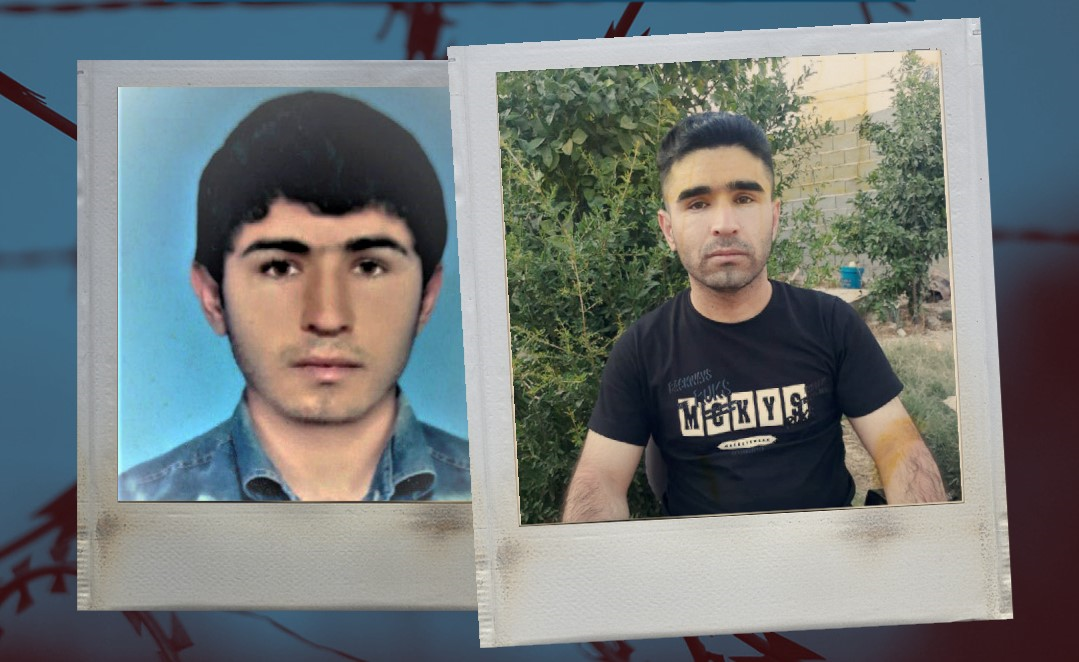
Saleh Shariati - wrongly sentenced to death for an accident that occured in 2012 when he was just 16 years old, on the basis of the oaths of non-witnesses - has been freed from prison following exoneration by Iran’s Supreme Court, Abdorrahman Boroumand Center for Human Rights in Iran (ABC) has learned. Saleh’s plight is emblematic of the Iranian judiciary’s open contempt for international human rights law, due process standards, and accountability. ABC welcomes the good news of the now-25-year-old Saleh’s release on May 20, 2021, from Shiraz’s Adelabad Prison, while recognizing that every day he spent behind bars was a blatant violation of his rights.
“Saleh Shariati’s freedom follows a nearly decade-long ride on a roller coaster of hopes and disappointments, in an Iranian judicial system where a combination of punitive and arbitrary criminal laws and widespread failures of due process routinely endangers, and sometimes takes, innocent lives,” said ABC Executive Director Roya Boroumand.
In April 2012, Saleh, a seasonal laborer from a poor family, was working on a farm in Asaluyeh, Bushehr Province when a co-worker fell down a well and lost his life. Saleh had the bad fortune of standing nearby. At first, the deceased’s family filed a complaint against the well’s owner, and Saleh was called to testify as a witness in the Asaluyeh Prosecutor’s Office. 16 months later, for reasons never made clear to the family, Saleh was summoned, interrogated without being given access to a lawyer or his family, and charged with murder. There was no mention of any questioning of the well owner in the case file. In violation of the law, the case was transferred from the jurisdiction of the incident, to Fasa, Fars Province, home of the deceased’s parents. Police Criminal Investigations agents there tortured Saleh into falsely confessing. As Saleh later recounted in a message from prison:
“They put me through the worst torture... Take any 15- or 16-year-old kid from the street, bring him here, torture him, lay whatever charge you want on him, and he’ll take it.”
At the original trial, Branch 3 of Fars Province Criminal Court One found no conclusive evidence to convict Saleh. The court then invoked qassameh, a practice dating to pre-Islamic Arabia and introduced to Iranian law after the 1979 Revolution, which allows judges to rely on baseless accusations to issue a ruling. Under qassameh, if a judge finds evidence in a homicide case inconclusive, he can request that the deceased’s next of kin introduce 50 male family members to swear that a defendant is guilty—even if they are not familiar with the defendant and were not present at the scene.
In March 2016, the court ruled Saleh guilty, citing the oaths of 57 of the deceased’s male family members, none of whom had witnessed the incident. Though the Supreme Court ordered a retrial, the Fars court sentenced Saleh to death again on the basis of qassameh on February 12, 2018. Upon appeal, Saleh’s case was reviewed by Branch 20 of the Supreme Court, which upheld the verdict on August 21, 2018. Saleh’s fate seemed sealed. As a last resort, Saleh’s new, pro-bono, lawyer advocated to have the decision reviewed under Article 477 of the Code of Criminal Procedure, which empowers the Head of the Judiciary to refer finalized sentences to the Supreme Court for review if he determines them to be in conflict with Sharia law. The Judiciary’s Office of the Deputy Chief for Judicial Affairs determined that the case was defective from the standpoint of Sharia, and the case went to Branch 39 of the Supreme Court.
On May 10, 2020, the Supreme Court overturned the Fars court’s ruling, citing flaws including a lack of sufficient investigation as to the true cause of the victim’s fall and the court’s failure to hear witnesses willing to testify that Saleh was not near the victim when he fell. The Supreme Court remanded the case to Fars Province Criminal Court One in order to resolve the investigative failures. Branch 2 of this court conducted a session on November 23, 2020, at which witnesses and Saleh himself were summoned. The case was then sent back to the Supreme Court for finalization, and the verdict was finally overturned and Saleh exonerated.
Saleh should have never been arrested, let alone sentenced to death in violation of Iran’s commitments under international law. Both the International Covenant on Civil and Political Rights, to which Iran has been a signatory since 1976, and the Convention on the Rights of the Child, which Iran ratified in 1994, categorically prohibit the use of the death penalty for crimes committed by persons below 18 years of age. Iran has nonetheless put to death at least 82 alleged juvenile offenders since the beginning of 2011 alone.
“The decade-long ordeal Saleh Shariati and his family endured sheds light on a fundamentally broken system which tolerates such gross miscarriages of justice and perpetuates a culture of impunity.” - ABC Executive Director Roya Boroumand.
Iran must hold accountable the interrogator who tortured Saleh into confessing, the prosecutor, and the judges who accepted such confessions and convicted him in the absence of solid evidence. The judiciary must also compensate Saleh for his lost years of youth and the pain inflicted on him and his family. Most importantly, Iran must take immediate measures to ensure that no child is again exposed to such an injustice by honoring its international commitments, ensuring all defendants access to a lawyer during interrogations, and doing away once and for all with capital sentencing for alleged child offenders. The archaic practice of qassameh, meanwhile, has no place in any justice system worthy of its name. In the meantime, ABC welcomes the long-awaited release of Saleh, expresses gratitude to all who have sought justice in his case, and hopes that Saleh and his family can finally resume a life unjustly interrupted.